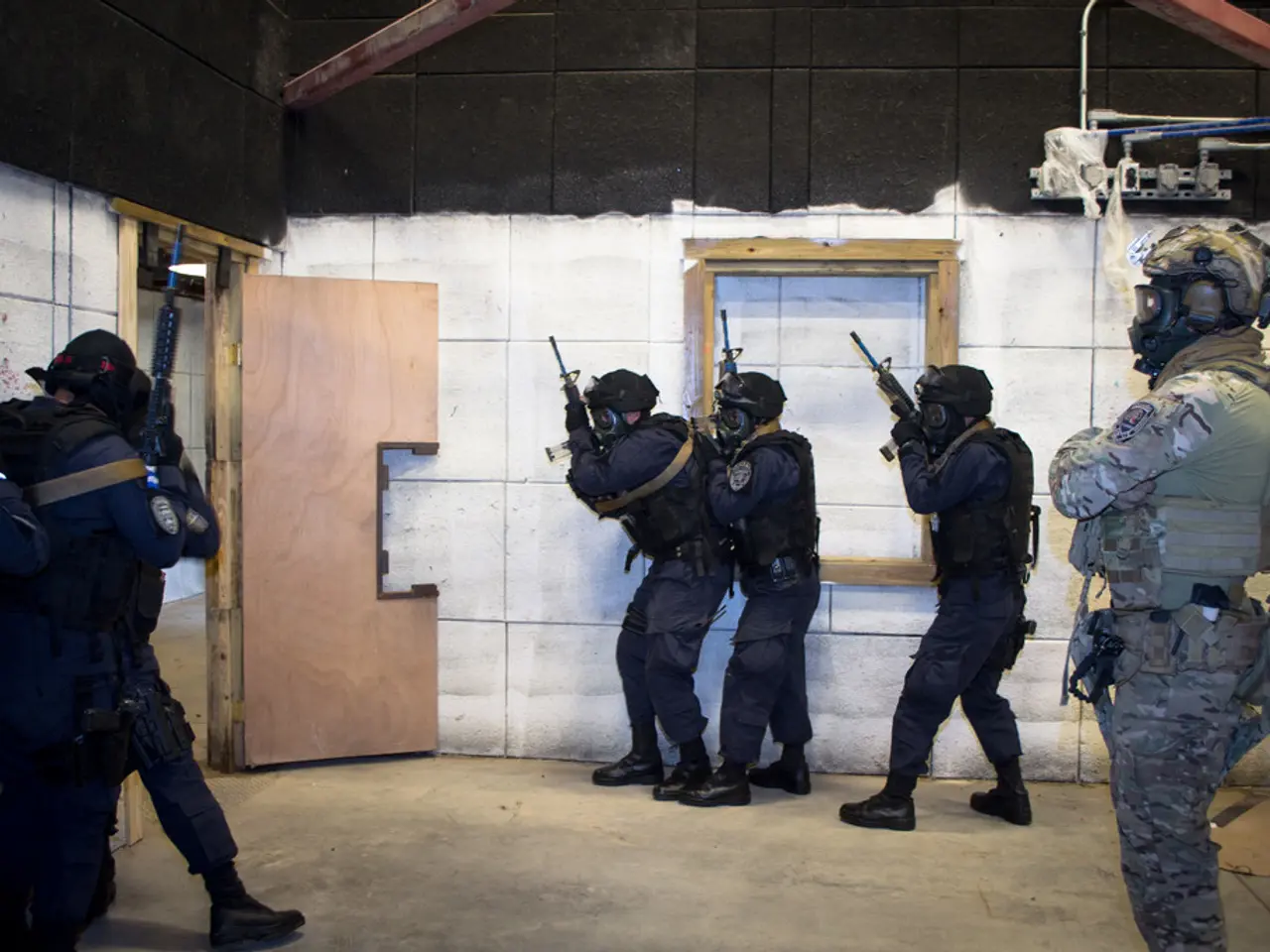Emerges from stealth: Scanary unveils its comprehensive security screening technology
Scanary, an Israeli startup, has recently launched a patented radar-based system for detecting concealed weapons and threats in crowded public spaces. The system, which is currently in pilot phases, promises to revolutionize public space security with its rapid, privacy-preserving detection capabilities.
Key Features and Capabilities
The system uses high-resolution electromagnetic 3D mapping to create detailed images of people and objects, analysing wave patterns to identify concealed weapons such as firearms, knives, improvised explosive devices (IEDs), and pyrotechnics like flares. It is sensitive enough to detect small metallic and non-metallic items beneath clothing or in pockets, while trained AI reduces false positives by ignoring common personal items such as phones and keys.
One of the key advantages of Scanary's system is its speed and non-invasiveness. Scans are completed in under two seconds as people move naturally through the scanning zone without queues or physical contact. Once a threat is detected, the system’s AI classifies the object, and AR interfaces pinpoint threat location in real time to alert security personnel swiftly.
Privacy and Compliance
Unlike facial recognition or traditional scanners, Scanary does not collect visual images or reveal body shapes, preserving individual privacy. It has received European regulatory approvals including CE and GDPR certifications. The system is undergoing U.S. regulatory approval with pilot tests upcoming there, following initial deployments anticipated in Israel.
Operational Context
Intended for use in high-traffic venues like stadiums, transit hubs, airports, and public events, Scanary’s system aims to replace slow physical pat-downs and checks with a scalable, cost-effective alternative that respects privacy while enhancing security at mass events.
Leadership and Technical Expertise
The startup's technology is led by experts including Dr. Gideon Levita, with backgrounds from the Iron Dome missile defense system, lending credibility to the radar and AI integration approach. CEO Ronen Yashvitz, a former Unit 8200 officer, previously led Gita Technologies, which was acquired by Verint. Scanary currently employs 10 people.
Founding and Funding
Scanary was founded in 2024 by a team of veterans from Israel's high-tech and defense sectors. The company has raised $3.5 million in pre-seed funding from prominent angel and strategic investors.
Vision for the Future
Ronen Yashvitz, CEO and co-founder of Scanary, stated that the system's aim is to transform public safety in open spaces, enabling threat detection from a distance without stopping people, creating lines, or compromising privacy. Pilot deployments are set to begin in Israel in the coming weeks, with U.S.-based pilots to follow. With its rapid, privacy-preserving detection capabilities, Scanary's radar-based weapon detection system is a promising technology for safer public spaces while maintaining flow and privacy.
Artificial-intelligence, employed by Scanary, is crucial in reducing false positives by properly identifying concealed weapons while ignoring common personal items. The artificial-intelligence system, integrated with the radar-based technology, swiftly classifies objects and pinpoints threat locations in real time.
Technology, specifically Scanary's patented radar-based system, is poised to revolutionize public space security, offering a rapid, non-invasive, and privacy-preserving method for detecting weapons in crowded settings, such as stadiums and airports.




